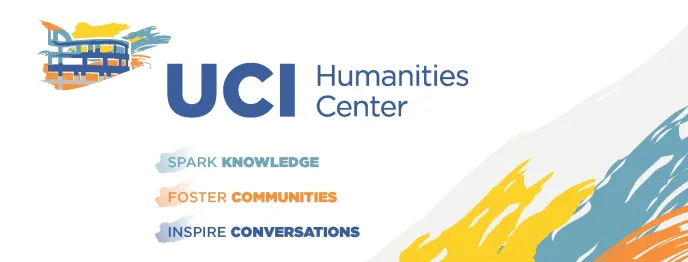Why The 1619 Project Matters in 2020

This fall, the University of California, Irvine (UCI) Humanities Center is sponsoring a series of events that are devoted to exploring The 1619 Project. Released last year by the New York Times, The 1619 Project asks readers of the magazine and listeners of the podcast to reimagine the origin story of this country. Instead of 1776, what if we considered the introduction of slavery as the foundation of the nation? Nikole Hannah-Jones, the prize-winning creator and lead author of The 1619 Project, encourages us to consider how the institution of slavery has left deep imprints on the U.S. that persist to this day. Throughout the month of October, UCI will host events that explore the impact of slavery on the country’s political ideals and practices, financial institutions, the health care system, schools, music, and the visual arts. The series will culminate at the end of October with a virtual visit by Nikole Hannah-Jones.
I chose The 1619 Project to spark campus- and community-wide conversation to support the broader mission of the UCI Humanities Center. We prioritize the goal of promoting “Conversations That Matter” to foreground the importance of the humanities in helping us understand pressing societal issues. UCI is a federally designated AANAPISI (Asian American Native American Pacific Islander Serving Institution) and an HSI (Hispanic Serving Institution). We are located in one of the most diverse counties in the country, despite popular cultural representations and the history of Orange County as a white flight suburb. Despite this diversity on campus and off, segregation by class and race is readily apparent and the numbers of African American residents and students are miniscule. I hope that this campus-wide engagement with The 1619 Project will help change our campus culture, which is one reason why the Humanities Center is partnering with the campus’ Black Thriving Initiative. Even within a majority-minority institution, anti-Blackness and racism can be pervasive and must be addressed.
This fall, UCI faculty and graduate students across the campus will be speaking, facilitating discussions, and teaching on campus about The 1619 Project. They, in turn, invited their colleagues from other universities and beyond the academy to enrich our conversations. Our staff partners—too often overlooked for their essential labor in enabling our collective learning—are co-sponsoring and promoting these events. To encourage students to share what they learned by attending the events, we are also sponsoring a Student Showcase to solicit one minute reflection videos. We have off-campus partners as well. The UCI History Project reached out to K-12 teachers and within one day, more than 30 public school teachers in Southern California signed up to engage with the UCI events and explore how to integrate The 1619 Project into their curricula. Their enthusiasm is particularly heartening, since the political threats to defund schools have singled out educational institutions in California.
Some scholars have critiqued The 1619 Project for its accuracy and interpretation. For example, my colleagues in Latin American Studies date the arrival of enslaved peoples in the Americas (Puerto Rico specifically) to 1520. Others are dismissive for divergent reasons. One of my colleagues critiques The 1619 Project for seeking to direct attention away from the revolutionary ideals of 1776. Another refused to participate, because The 1619 Project was too moderate in its racial politics; it sought to reconcile enslavement with the phenomena of Black Patriotism. Keeping these critiques in mind, the UCI events will explore both the power of the project’s provocation and also go beyond its findings and reflections. How does one celebrate the words that “all men are created equal, that they are endowed by their Creator with certain unalienable Rights,” when some of the authors and signers of this document owned people and their descendants as slaves? How did the founding fathers make sense of this contradiction? How did the people who were enslaved understand their lives and their relationship to this nation? And, what of the people who were neither master nor enslaved but lived with the peculiar institution of slavery and its aftermath? These are questions that I believe we must try to answer, not just to understand our past but to consider our present and our future.
The disproportionate impact of COVID-19 on racialized communities and the renewed visibility of persistent violence calls us to more fully understand why these disparities exist and why these acts and expressions of hatred are so pervasive. As an educator, my hope is that we might find a way forward through understanding and empathy. We need tools, both intellectual and emotional, rather than bans and threats. There will be disagreements and differences in how our speakers and audiences understand enslavement and its relevance in our contemporary society. Having these conversations, no matter how difficult, is the ideal environment to teach and learn. And, what we learn matters for how we choose to live with each other.
The UCI 1619 Project launches Thursday, Oct. 8 and continues until Oct. 29. For more information please see our poster and list of events.
Judy Tzu-Chun Wu is the Faculty Director of the Humanities Center at the University of California, Irvine.
Learn how to contribute to the Humanities for All blog here.